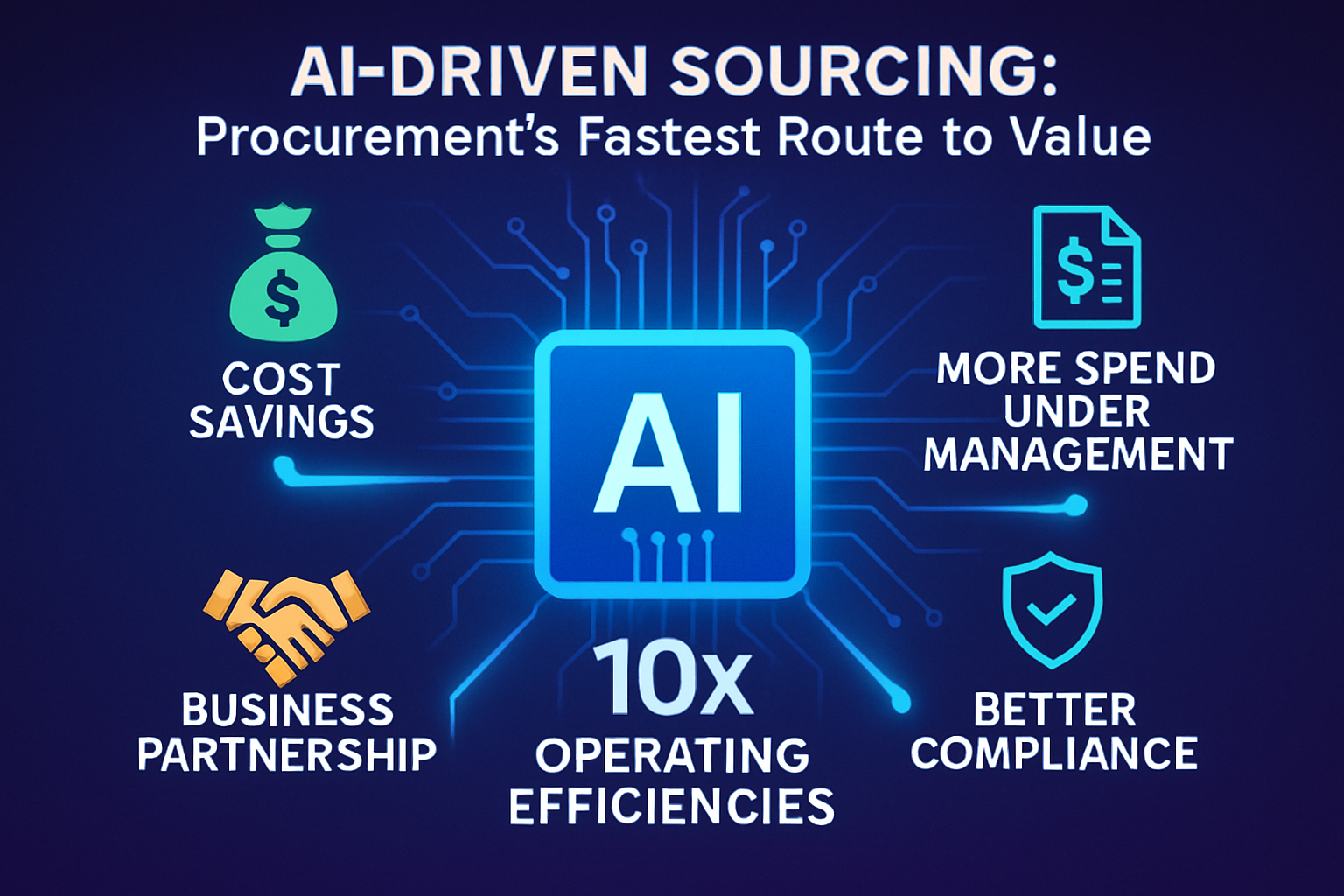Why AI Matters to the CPO: What’s Real and What’s Not for Procurement Leaders
-01.png?width=1000&name=What%20is%20Real%20and%20What%20is%20Not%20(Part%201%20of%203)-01.png)
Today’s procurement leaders face a series of unparalleled challenges. To help their teams rise to the occasion, CPOs must think differently about how they utilize people, processes, and current and emerging technologies. The decisions made today will have a deep and lasting impact across the enterprise value chain and on the suppliers with which companies work.
One of the technologies that CPOs are showing increased attention to is artificial intelligence (AI). Although AI is not new, dating back to the 1950s and achieving maturity in the 1990s, it has not been an area of distinct focus for procurement until now. Today, however, AI’s primary capabilities—including the ability to “learn” and “think” quickly and with a lower error rate than humans—may be precisely what procurement needs to address supply challenges with goods and services.
The world of the procurement leader is rapidly evolving. Leading CPOs are gaining ground on a number of fronts, including value creation, stakeholder satisfaction, and alignment with enterprise objectives. Procurement is increasingly leveraging AI and machine learning to anticipate and ensure business continuity and proactively manage events with a focus on speed and value. AI can not only improve efficiency and results in the short term but also expand the scope of what procurement can achieve in the longer term.
In this three-part series, I provide the context and details that CPOs need to understand about the value of AI for procurement and sourcing, starting with what is real and what is not.
AI Delivers Speed at Scale
Technology can quickly process vast amounts of data and deliver qualified options or recommendations. The legacy sourcing process is in desperate need of improved speed and scale. The business does not have time to wait for a cumbersome request for proposal (RFP) process to be run, and procurement cannot constrain the number of suppliers considered for the sake of time. AI can shorten RFP cycle times by as much as 50% by applying analytics to available information, improving needs scoping, comparing those needs to prequalified suppliers, and quickly presenting a curated supplier short list.
AI Doesn’t Replace People, It Augments Them
AI has some procurement professionals worried that they are at risk of losing their work to robots that never make mistakes and have no need for downtime. But AI is not about human replacement—it is about allowing humans to focus their irreplaceable capabilities where they are needed most while allowing technology to handle data-driven tasks that can be automated. Only people can develop category strategies, deeper partnerships with stakeholders, and innovations with suppliers. Further, humans provide the intent behind the scope for each sourcing project, while well-programmed AI improves and streamlines the process.
AI Learns Over Time
Whether we realize it or not, we are involved in patterns all the time. Identifying these patterns and applying them to relevant future events are specialties of AI. When procurement professionals apply these capabilities to strategic sourcing, they gain the ability to apply pattern matching to past sourcing requests, uncovering latent connections among spend, suppliers, and demand that they can use to better inform decision-making. In addition, AI ensures each strategic sourcing project is not a linear, one-time event. AI improves over time, incorporating feedback about supplier curation, award decisions, cost performance, and service delivery.
Today’s procurement technology must be applied differently because of the scope of the challenge and the best professionals’ desire to do increasingly challenging and strategic work. AI is fit for purpose in these conditions. AI is a step forward to the next-level performance that procurement has long called for, but it is not a total solution. Without it, CPOs have to choose between speed, granularity, and results. With it, they can achieve all three while maximizing procurement’s impact, emphasizing total value, and building strong stakeholder relationships.
In part 2 of this series, I will address procurement’s “complex intent” and how AI-enabled strategic sourcing has evolved to the point where it can handle even the most complicated service categories.
***********************
Keith Hausmann is Chief Revenue Officer at Globality.



-01.png)